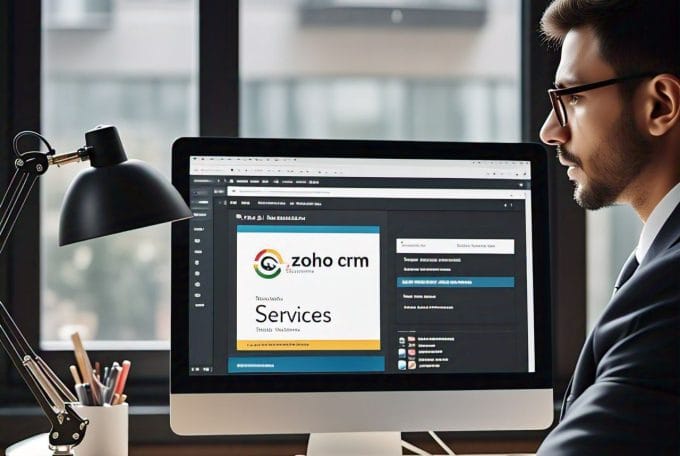What is the Best CRM Software for Your Business? A Comprehensive Guide
Every successful business shares one common trait—strong relationships with its customers. But how do you keep track of thousands of interactions, nurture leads, and ensure no opportunity slips through the cracks? That’s where Customer Relationship Management (CRM) software comes in.
The right CRM system doesn’t just organize your contacts; it transforms how you connect with customers, driving engagement and growth. In this guide, we’ll explore what makes a CRM exceptional, the top options on the market, and how to choose the perfect fit for your business.
Why CRM Software is a Game-Changer for Businesses
Imagine remembering every customer’s name, purchase history, and preferences without breaking a sweat. CRM software makes this possible by centralizing data, streamlining communication, and automating repetitive tasks.
From small startups to multinational corporations, CRM systems empower businesses to:
- Enhance customer interactions with personalized service
- Boost sales with better lead tracking
- Improve efficiency with task automation
- Gain insights through advanced reporting
Key Features to Look for in CRM Software
1. Contact and Lead Management
A CRM’s core function is managing your contacts and tracking every interaction—from initial contact to final sale. Look for a system that offers easy organization, detailed customer profiles, and lead-scoring capabilities.
2. Sales Pipeline Management
A visual sales pipeline lets you see where each lead is in the buying process, helping you prioritize efforts and close deals faster.
3. Automation Tools
Automation saves time. Choose a CRM that can automate email follow-ups, task reminders, and data entry to free up your team for more important work.
4. Integration with Other Tools
The best CRMs integrate seamlessly with your existing software, from email platforms to accounting systems, creating a unified ecosystem.
5. Customizable Dashboards and Reporting
Insights drive smarter decisions. Opt for a CRM with robust reporting tools that can be tailored to your unique business metrics.
Top CRM Software for Businesses
1. Salesforce – The Powerhouse of CRM
Salesforce is often hailed as the king of CRM software—and for good reason. Its extensive feature set includes:
- Customizable workflows
- AI-powered analytics
- Seamless integrations with thousands of third-party apps
Best for: Large enterprises and growing businesses with complex needs.
2. HubSpot – The All-in-One Platform
HubSpot offers a free CRM with powerful upgrades available. It’s known for:
- Intuitive interface
- Marketing, sales, and customer service hubs
- Deep automation capabilities
Best for: Small to mid-sized businesses and startups.
3. Zoho CRM – Flexible and Affordable
Zoho CRM provides a highly customizable experience at a budget-friendly price. Key features include:
- Multichannel communication
- AI-driven predictions
- Scalable pricing options
Best for: Businesses of all sizes looking for flexibility.
4. Microsoft Dynamics 365 – Enterprise-Ready Power
Part of Microsoft’s extensive suite, this CRM integrates perfectly with other Microsoft tools. It offers:
- Advanced analytics
- Enterprise-level scalability
- AI-driven sales insights
Best for: Large businesses and organizations already using Microsoft products.
5. Pipedrive – Focused on Sales Success
Pipedrive is sales-centric and designed to help teams close deals faster. Notable features include:
- A visual sales pipeline
- AI-powered lead recommendations
- Easy-to-use interface
Best for: Sales-focused teams and small businesses.
How to Choose the Best CRM for Your Business
1. Identify Your Business Needs
Do you need help managing leads? Automating marketing campaigns? Improving customer support? Clarifying your primary goals will narrow down your options.
2. Consider Scalability
Your business will grow—choose a CRM that grows with you. Opt for a platform with flexible pricing tiers and advanced features you can unlock as needed.
3. Evaluate User Experience
Adoption is critical. Look for software that’s intuitive and easy to learn to ensure your team embraces it quickly.
4. Prioritize Integration
A CRM should seamlessly fit into your existing workflow. Check compatibility with your email, project management, and accounting tools.
Benefits of Using a CRM for Small Businesses
Even the smallest businesses benefit from CRM software. Imagine being able to:
- Automatically send birthday greetings to customers
- Track sales in real-time
- Gain insights into customer behavior without hiring a data analyst
Why Choose Softsys Corporation for Your CRM Needs
At Softsys Corporation, we believe in providing tailored solutions that drive real business value. Our team can help you:
- Evaluate your unique business needs
- Select the perfect CRM platform
- Implement and customize your CRM for maximum efficiency
Conclusion
The best CRM for your business isn’t about the biggest brand—it’s about the right fit. From managing customer relationships to boosting sales, CRM software is your key to unlocking growth and efficiency. Let Softsys Corporation guide you in choosing and implementing a solution that transforms your business from the inside out.
FAQs
1. What is CRM software?
CRM (Customer Relationship Management) software helps businesses manage customer interactions, streamline processes, and improve sales and service.
2. Can small businesses benefit from CRM systems?
Absolutely! CRMs help small businesses stay organized, automate tasks, and grow relationships without overwhelming resources.
3. How much does CRM software cost?
Costs vary widely. Many offer free basic plans, while advanced features can range from $12 to over $100 per user per month.
4. Is cloud-based CRM better than on-premise?
Cloud-based CRMs offer flexibility, remote access, and lower upfront costs, while on-premise solutions provide greater control.
5. How do I know if my business needs a CRM?
If managing customer relationships, tracking leads, or improving team collaboration feels overwhelming, a CRM could streamline your processes.



